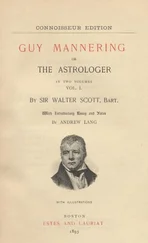WEST
2 SOUTHERN CALIFORNIA
It was a Sunday morning when Sarah first called to talk about Dad. I remember because I was standing on the treadmill she gave me. The TV was on, one of the news channels, and sometimes I looked at it, but mostly I just stood there staring at the dead odometer. I was fully dressed for the day, and sipping coffee. A glance here and there at the morning show. The power button on the treadmill totally untouched, no red numbers telling me how much time I had left. It should’ve been our eighth anniversary. A year already since the divorce, and things weren’t getting any better. They were getting better, in that I no longer wanted to throw myself into the Pacific (in those fantasies, Sarah always came bounding down the beach, bikini clad, just in time…), but everything else was turning to shit. I still couldn’t believe Mom was gone and all the world around me hardly noticed. This was Mom . We did talk, Sarah and I, occasionally, but not much. I felt like a stranger in my own life. The sound of her voice used to be mine, and now it was his. Nikos, the infamous Grecian usurper. I wanted to hate the man, but more I wanted to avoid what I really knew in my heart, the basic truth that she went with him because she was lonely, and because somewhere along the line, her loving husband had become an asshole. I’ll say this: the phone call was unexpected. I took my cell from the holder on my belt.
Sarah 8:55.
“Well, hello, stranger,” I said.
She said, “I can’t really talk, not now.”
“So talk.”
“Okay. There is something up with Dad. Your dad. Something unkosher, I mean definitely. But I can’t really talk right now. So call him.”
“So nice to hear from you, too,” I said.
“I’m serious,” she said. “I’m coming,” she said to someone else.
“What, is he sick? He told you he’s sick? And who are you talking to?” I did not yet know about Nikos.
“It’s not that,” she said. “It’s something else. There’s a quiver in his voice, a kind of manic thing. It’s depressing and a little bit scary. I can’t talk.”
“And yet here we are talking,” I said.
“I’m coming,” she said again to someone else. “Go see him. Just go see him.”
“We should have dinner tonight.”
Sarah and Dad had already been phoning each other for years, and this way before any talk of unhappiness, or separation, back when we were still giddy as pink pigs rolling in cool summer shit, and falling on each other every chance we got. Good God, I loved that woman. I should say actually it was Dad who phoned Sarah, and hardly the other way around. The man felt responsible for her soul.
“You should see him,” she said. “Go visit him.”
“Okay, stop. Dad and I are fine,” I said.
“He tells me.”
“And if he’s sick, he hasn’t said anything to me.”
“Listen, I’ll call you tomorrow, I promise,” she said. “The man is talking to me about his dreams again, about your mother, and I’m not sure these are good dreams. Sadder than I’ve ever heard him before.”
I said nothing.
“I’ll call you tomorrow,” she said. “I have to go. Maybe dinner tomorrow.”
She hung up. I put the phone back on my belt.
“And happy anniversary,” I said, because hey, you know what, who knows, maybe a post-anniversary dinner with Sarah. Some white wine, polite conversation. I’d been going through such a long and predictably depressing phase, typical divorce stuff. I’d been angry, and lethargic, then just sad, and generally unmotivated, afternoon bourbons poured to the brim of a water glass. But as of this morning, I decided, it was over, finished, finito. We were beyond the cliché of the broken warring couple. We were adults.
Beside the TV, on the far wall, there was an old picture of Sarah and me at the beach. Two silhouettes, the blaze of a setting sun. We’d lived there in the condo by the water for seven long years. I always liked beaches, but I never really liked the ocean. Too damn big. And that treadmill was tremendous, took three men to bring it up the stairs. She had given it to me the year before. Said it was her goodbye gift and, frankly, despite the fact that I did come to love the convenience, jogging a few mornings here and there, I was tired of seeing it every waking morning of my life. I wasn’t exactly a runner when we met. Running for what? Toward what? I tried asking her this once. On our very first run. We’d been dating for a few weeks. I guess it was dating, but I also feel like I’ve never dated in my life. I feel like I meet a woman, or girl — this habit goes a long way back — and I completely surrender, all the way, I’m in love. Like it or not, it’s all over. Maybe they were dating. But I certainly wasn’t. We went on a run, Sarah and I, which was probably a date for her, but for me was an expression of unbounded and obvious loving devotion.
This was not an easy run, especially for a beginner. Bogging down in the sand, I couldn’t keep up. We went for a mile, maybe less, probably a lot less, before I was wondering how it was I’d never run on my own beach. Baywatch was popular at the time, and so I’d seen how beautiful running on the beach could be. It seemed to me I’d done something immoral, this not running. Sarah was ahead of me, her red-shorted bottom bouncing back and forth like a heart, upside down, buoyant, and persuasive. Keep running. But I was slowing, my heavy and also a little bit wet camouflage shorts weighing me down (I’d already tripped and stumbled into the water), and she was getting farther and farther away from me. I stopped running, and watched her go small, smaller and smaller, and then suddenly I started to panic. I felt like I had to prove myself; I was worthy. The last thing I wanted was for her to turn and see me just standing there, like I’d totally given up. So I bolted. I ran like I never had before, or ever have since. My calves on fire, the torn hems of my camo shorts chafing just above the knees. I ran for her, my tiny love getting small in the distance. No matter what, she would not turn and see me standing still or far behind. I willed it so. And so I ran. But then Sarah was getting bigger. Bigger and bigger with every passing second, because she had turned! I was powerless, and she had seen me for what I was, and she was getting bigger and closer and bigger and closer. Effortless for her, as far as I could tell. Then she was right there and slowing down and then she walked up to me, and said, hardly out of breath, “Hey, slowpoke.”
She was careful to wipe her face of sweat with her forearms, and not her hands, I remember this, so she could take my face in her hands and kiss me. How do you describe a kiss without making it sound sentimental or different from any other kiss? I don’t know. There was this — a piece of sand from her mouth went into my mouth, and that single grain tasted like salt and her sweat and the whole Pacific Ocean. I didn’t spit it out when she was finished with me. I lightly bit it between my teeth, and I could not stop smiling.
She said, “I like it when you smile. You should smile more.” She took my hand and we walked in the direction she’d been running. She said, “I don’t like running alone anymore.…”
I stepped away from the treadmill, and told myself to stop being sappy, and looked at the clock, nine a.m.
Already thirty minutes late for work.
But I also happened to be the boss, which came in handy since work was seeming less and less a priority with each passing day. Until today. This day.
I shut off the TV.
We ran a few more times together after, but never for very long. I slowed her down, and I couldn’t go very far, anyway. Eventually I started running at the gym, by myself, and then on the treadmill at home. We took long walks together instead. She teased me once and said my occasional morning jogs did not exactly make me a “runner,” not yet. At least not according to her, who was a runner practically monkish in her devotion. Plus Sarah, with her claustrophobia — and God forbid we call it that, because she refused to admit she had a problem, “I just don’t like low ceilings”—she never ran inside. She preferred the freedom of a forest trail, the wide beach path, the airy and open outdoors. At some point I really should take my mileage outside, she’d said. She apparently believed a treadmill in the bedroom by the window was supposed to help get me there. Eventually. And she thought it would help with the whole ugly common process of divorce, that it would clear my head. On the other hand, I was convinced our problems were not at all common. I bridled at the thought of being common. She often said, “But running can save your life, Josie.”
Читать дальше












